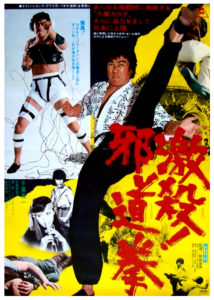
“Soul of Chiba” Japanese Theatrical Poster
Director: Chan Tung-Man, Noda Yukio
Cast: Sonny Chiba Shinichi, Luk Chuen, Shiomi Etsuko, Bolo Yeung Sze, Fong Yuen, Kong Chuen, Tadashi Yamashita, Lau Nga-Ying, Peter Chan Hoh-San, Krung Srivilai, Naowarat Yooktanun, Somjit Sapsamruey
Running Time: 94 min.
By Paul Bramhall
At the risk of blacklisting myself from ever writing for an Asian cinema site again, I’ll admit I initially wasn’t very enamoured with Sonny Chiba. When I first got into Asian cinema in the late 90’s, I found myself developing an insatiable appetite for Hong Kong action and, without realizing it, I came to expect action from any corner of Asia to be on the same level. When, inevitably, I found myself watching The Street Fighter, its exploitative tone and raw karate style were met with indifference from my younger self. What was the deal with everyone digging this guy so much? Of course, in the preceding years I’ve come to appreciate The Streetfighter for the raucous slice of OTT exploitation greatness that it is, but let it be said – if the first Sonny Chiba movie I watched back then was Soul of Chiba, I would have been on the bandwagon straight away!
In 1977, allegedly tired of the Toei executives lack of understanding on how to make a proper karate movie, Chiba took matters into his own hands and hauled ship over to Thailand to produce a movie over there (and more importantly, do things his way). He brought several members of his Japan Action Club with him, including Etsuko Shihomi, and the director and star pairing of the Za Karate trilogy, Yukio Noda and Tadashi Yamashita (aka Bronson Lee). Throw in the likes of Bolo, and frequent Shaw Brothers player Luk Chuen, what you’re left with is 90 minutes of unadulterated, delirious entertainment.
Dispensing with such trivialities as a coherent plot and characters that make a lick of sense, Soul of Chiba chooses to go for broke from the word go, with a frequently laugh out loud nonsensical plot, some of the best action I’ve seen Chiba partake in, and randomness around every corner. The guilty parties at the helm are co-directors Yukio Noda and Chan Tung-man (the father of Peter Chan, director of Wu Xia, who also has a small role as a child that looks up to Chiba). Noda was a journeyman director in Japan, and would also direct Chiba again during the same year in Golgo 13: Assignment Kowloon. Tung-man on the other hand is more interesting, and seemed to specialise in Hong Kong or Taiwan co-productions with Thailand, with titles like Killer in the Dark and The Wolf Girl (sadly no relation to Chiba’s Wolf Guy) contributing to his short filmography of just 5 movies.
There are various angles one could take when considering how best to explain the plot, and after some deliberation, I’ve decided to go at it like this. There are essentially 3 main characters – Chiba, who we meet as a child when the movie opens just as his parents are murdered. Swearing to take revenge, he grows up under the tutelage of an old kung-fu master, however when the master is murdered by a traitorous student (Luk Chuen), he decides to hunt him down instead (seriously, his mission to avenge his parents is never mentioned again). There’s been some shady drug dealings going on involving the murdered teacher and student, so Yamashita turns up as an undercover cop (= a fake moustache) to get to the bottom of where the drugs are coming from.
Then you have Thai actor Krung Srivilai, whose unfinished Thai movies often turned up in cut and paste IFD ninja flicks, playing a black market diamond and drug dealer visiting from Hong Kong. Hilariously, Srivilai’s character is treated almost like a suave 007 style debonair, as he seduces Shaw Brothers sexpot Lau Nga-Ying (indulging in some From Here to Eternity beach frolics), and struts around with a confident swagger. Somewhere along the way, he kind of/sort of sees the error of his ways, as he comes to terms with his difficult upbringing (more on that later). This results in Yamashita teaming up with both Srivilai and Chiba at various points throughout, but for those wondering, there’s no need for concern as this is very much the Chiba show, despite him not always being front and center.
It would take forever to detail all of the wonderful bizarreness contained within Soul of Chiba’s duration, but my favorite moment was when Srivilai takes a bullet, so Yamashita sends him down the river to his family, who he promises will take care of him. While there he falls unconscious, constantly yelling “Mother! Mother!”, until he wakes up and it’s revealed that… Yamashita’s mother is also Srivilai’s mother! The mother then proceeds to ramble on for what feels like 5 minutes stating this fact, “This man is my son, yes, he really is my son…” It’s one of the strangest family reunions ever committed to celluloid, but is quickly topped by another scene of Chiba training his fists and feet in an insane flurry of motion, while electricity surges through his body via various electrodes connected to his limbs (and posterior, as the camera frequently reminds us).
As if turning yourself into a human car battery wasn’t enough, he also kills the pain by gulping down handfuls of cocaine. Yes, long before Beast Cops gave us Anthony Wong going into battle under a cocktail of booze and pills, Soul of Chiba has Sonny Chiba throwing down while fuelled on the white stuff. No wonder he’s forgotten about avenging his parents. Regardless of the moral ambiguity of it all, the fight scenes on display are of a stellar quality. The budget is obviously much lower than Chiba’s local Japan productions, but this was made up for by the fact he gave himself much longer to film than Toei would provide on native soil. From a confrontation against a group of Muay Thai fighting locals on a bridge, which has Chiba literally throw one of them like a ragdoll into the river below, to a face off against four fighters in the jungle, who are possessed by monkey magic.
This fight is a particular standout for a myriad of reasons. The fighters, played by members of the Japan Action Club, eschew the traditional monkey style kung fu, instead opting to utilise a more feral approach, that sees them attempting to bite Chiba to death. When Chiba decides to let loose, it’s a sight to see, in a wildly satisfying display of ferocity. Amusingly, one part of the fight has someone off-screen throwing real monkeys at Chiba, but I guess that’s Thai filmmaking for you. This fight also utilises the technique that was first seen in Karate Warriors, with the mix of slow motion and normal speed within the same shot (which in more recent times Isaac Florentine has become known for using), used to emphasise both the impacts and the choreography itself. While some say today the technique is overused, here it’s a perfect example of how it can enhance a fight.
Events eventually build up to Chiba and Yamashita closing in on Luk Chuen, Bolo, and the equivalent of a small army in the Thai jungle, for an extended finale that features more bullets missing people at point blank range than you can shake a stick at. After dispensing of wave after wave of hapless lackeys, the finale culminates in a showdown that pits Chiba versus a silver wigged Chuen, and Yamashita versus a trilby hat wearing Bolo. Seeing the karate style pitted against kung fu is perhaps Soul of Chiba’s biggest strength, as in a way it forces it to look more dynamic than how it’s usually portrayed, and both fights are a pleasure to watch. It’s likely a safe guess that both Chuen and Bolo contributed their own ideas to the choreography, especially considering Chuen choreographed The Damned from the same year, and Bolo also contributed to 10 Magnificent Killers.
There aren’t too many movies like Soul of Chiba out there. It feels like the wild exploitative nature of Japanese karate flicks collided head on with the energy of the Hong Kong kung-fu movie, crash landing in Thailand. Instead of going up in flames though, a strange kind of alchemy occurred and the end result somehow works, if not necessarily in all of the ways it intended. Throw in a random parasailing escape, grilled parrot for supper, lackeys being blow torched in the face, and a bow and arrow being made out of some string and a twig, the best way to describe Soul of Chiba is like a jolt of electricity to the posterior. You may want to pretend you didn’t enjoy it, but the reality is, it leaves you wanting more.
Note: The version being reviewed is the English dubbed release.
Paul Bramhall’s Rating: 8.5/10
https://www.youtube.com/watch?v=wF-oBDv_m34&feature=youtu.be

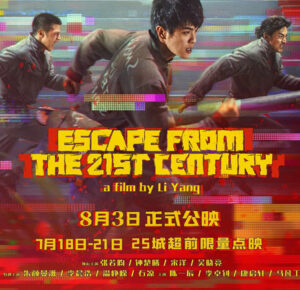
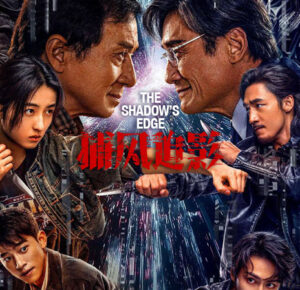
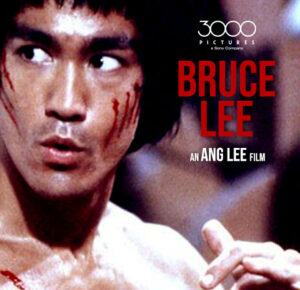
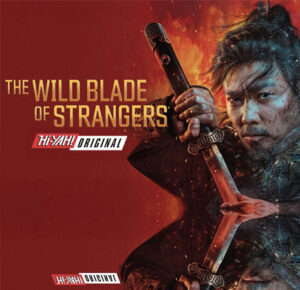
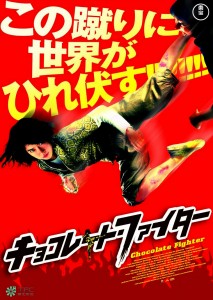
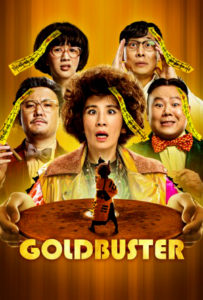

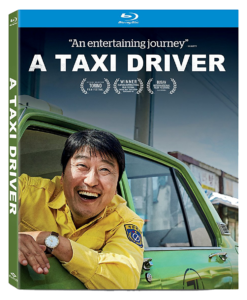

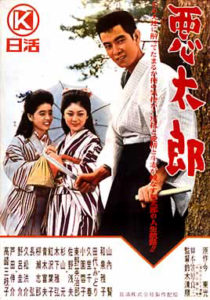
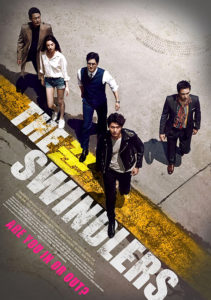

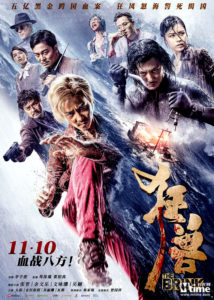
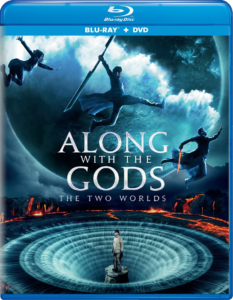

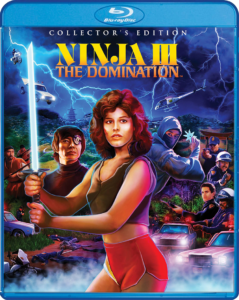

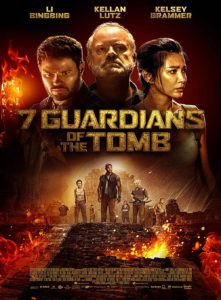



1 Comment